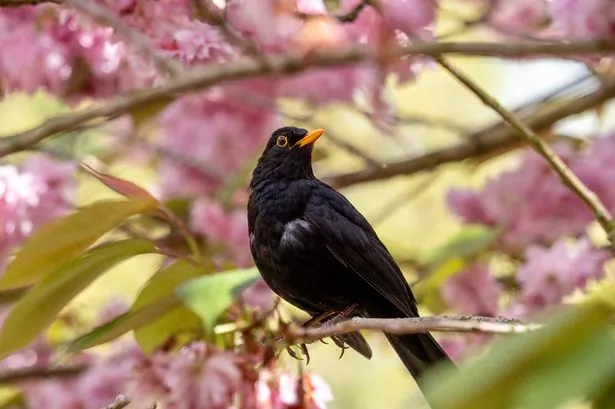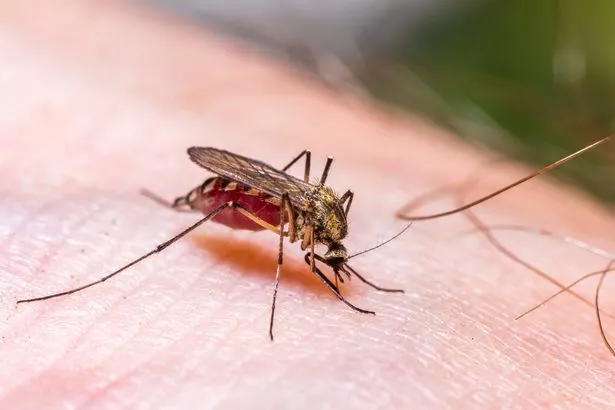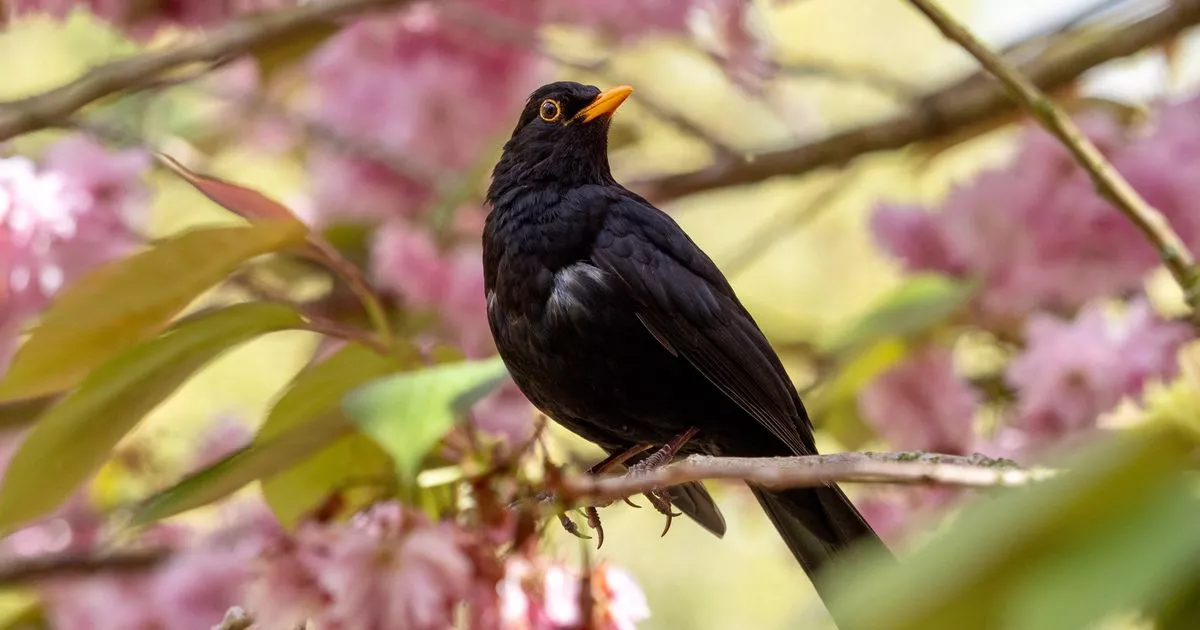A public appeal has been launched to protect the blackbird population following reports of a deadly virus decimating the animals
11:38, 06 Jun 2025Updated 11:40, 06 Jun 2025
 The blackbird population has been shrinking because of the Usutu virus(Image: Getty Images)
The blackbird population has been shrinking because of the Usutu virus(Image: Getty Images)
People who have blackbirds in their gardens have been urged to take “immediate” action following reports that large numbers of the animals have fallen victim to a lethal virus.
The Usutu virus, a mosquito-borne disease originally from southern Africa, was first detected in the UK in 2020 and has been affecting the blackbird population in southern England, with cases reaching as far north as Cambridgeshire.
The virus, which made its way into Europe 30 years ago and was responsible for many blackbird deaths there, was also linked to a 40 per cent plunge in the blackbird population in Greater London, according to Bird Guides. Usutu is said to cause minimal risk to humans.
The alarming rate of death has sparked concern among conservationists, with the British Trust for Ornithology (BTO) urging people with gardens and blackbirds to participate in a special survey to determine the scale of the impact and provide necessary assistance.
Dr Arran Folly, a senior research scientist at the Animal and Plant Health Agency (APHA), has voiced concerns about the persistent nature of the virus, warning that it could be a precursor to other mosquito-transmitted diseases arriving in the UK. He warned: “It gives an indication that in the future we might get other viruses that are transmitted by mosquitoes emerging in the UK.”
Attributed to climate change, mosquito populations are expanding due to rising temperatures, longer summers, and more intense rainfall – creating ideal conditions for both the insects and their pathogens to thrive in previously inhospitable areas.
As well as the public appeal to help monitor and report any blackbird sightings, researchers from the BTO and APHA are joining forces to investigate the effects of the Usutu virus on native bird species, reports Devon Live.
 Mosquitoes are the main culprits in passing on the virus(Image: Getty Images)
Mosquitoes are the main culprits in passing on the virus(Image: Getty Images)
A BTO spokesman said: “Blackbirds are currently nesting and are a common sight in gardens and parks. With public help, we can better track population trends and the virus’s impact.”
While blackbird numbers remain stable in rural and northern regions, the unpredictable nature of the virus calls for continuous observation. The combined efforts of APHA and BTO are crucial for gathering essential data to shape conservation tactics and prepare for potential future diseases.
The BTO added: “We are trying to better understand the extent and spread of Usutu virus and what the potential impacts of the virus might be on Blackbirds. In particular, as Blackbird numbers were already decreasing in London, a large urban area, we want to know if anything similar is happening in other urban areas, or whether these changes are specific to the capital, and how this compares to smaller urban and more rural areas.”
How will Blackbirds in Gardens help?
The BTO is conducting a survey to gain insight into the potential for disease transmission by blackbirds in gardens. The study aims to determine how the number of birds gathering together in gardens affects the transmission of diseases.
Furthermore, it will examine how blackbirds utilise different types of gardens and their success in raising young, particularly in varying levels of urbanisation, from rural to urban gardens.
According to the BTO: “Although largely harmless to humans, this is the first time in modern history that a mosquito-borne viral zoonosis (a disease which can be transmitted from animals to humans) has emerged in wild animal hosts in the UK but, with changing climates, more may occur in the future.”
The survey is part of the Vector-Borne RADAR project, a broader partnership project funded by UK Research and Innovation (UKRI) and the Department for Environment, Food and Rural Affairs (Defra). The project aims to understand the emergence and transmission of mosquito-borne viruses in the UK, which are expected to increase with climate change.
The BTO stated: “The project will improve understanding of how these viruses emerge in new environments, enhance surveillance of diseases in wild birds in the UK and develop an early warning system for disease outbreaks.”
In order to take part in the survey, you will need to create a ‘My BTO’ account, which you can do so by clicking here and selecting ‘Register’. Once that’s done, click here to go to the survey.
